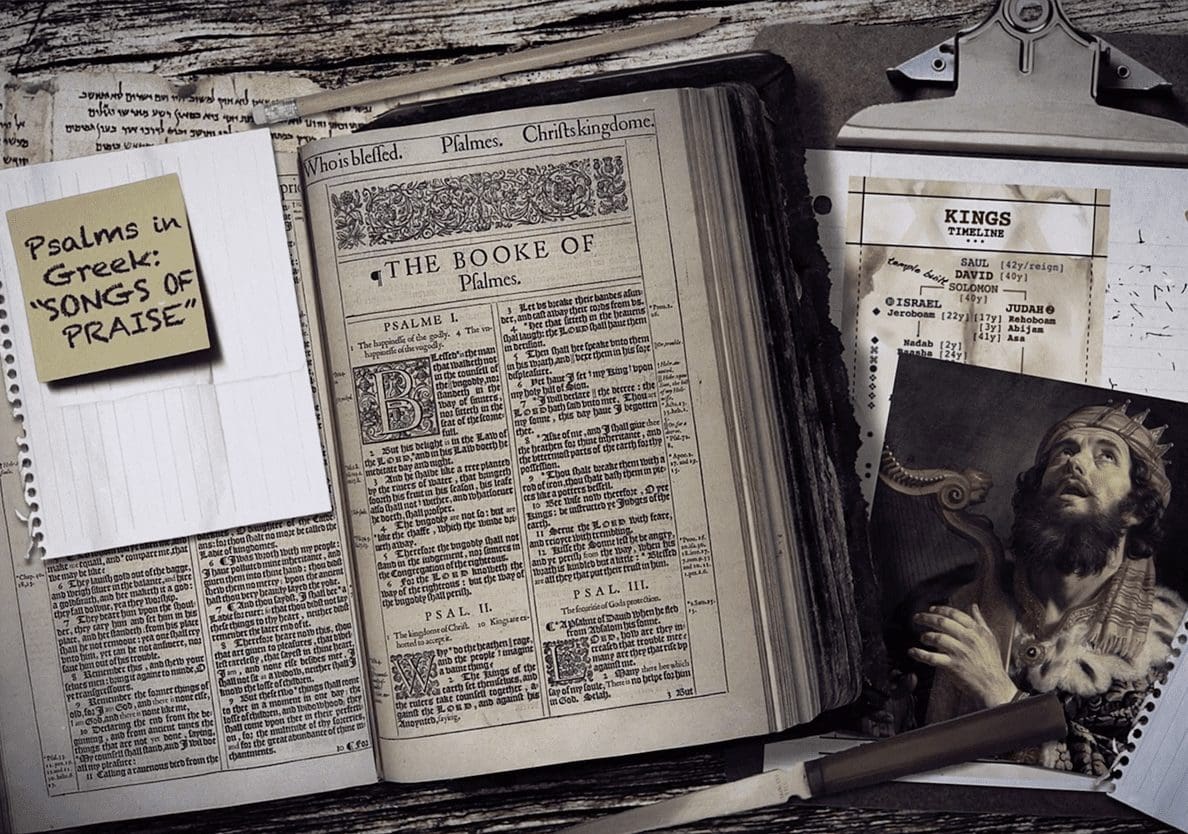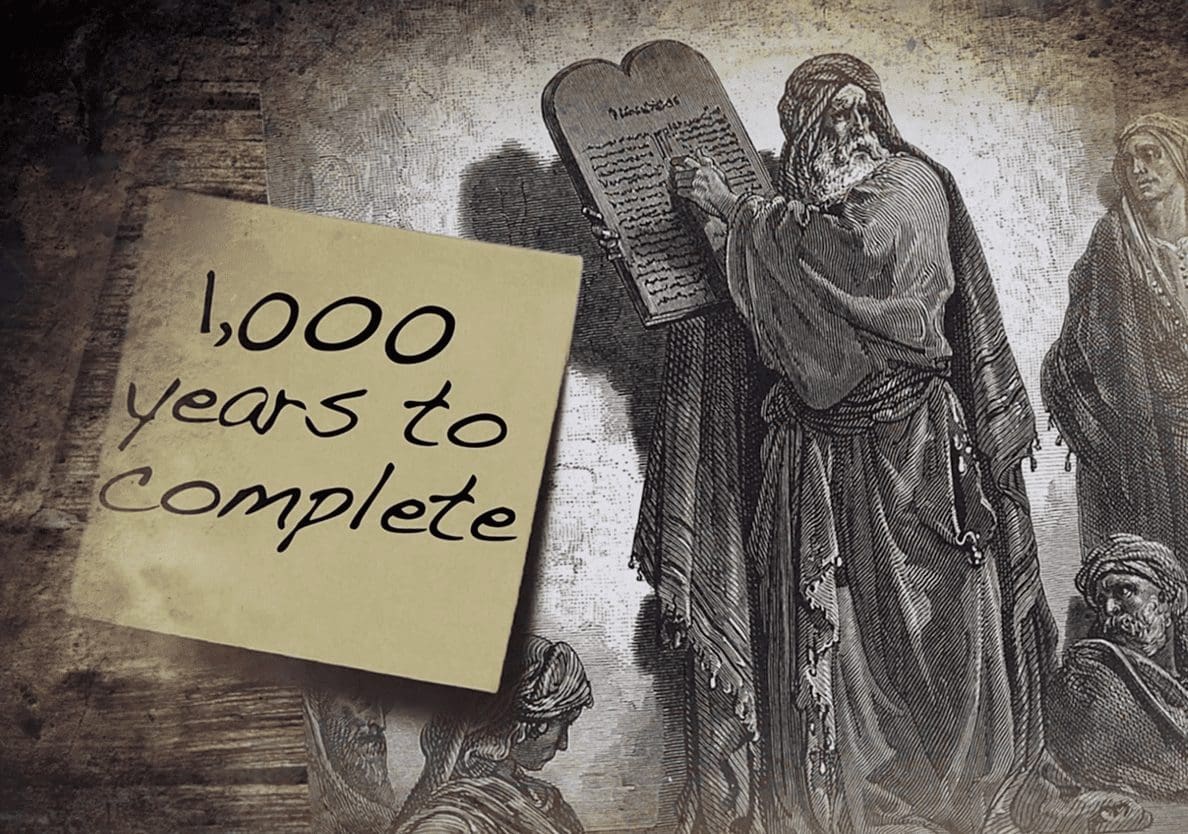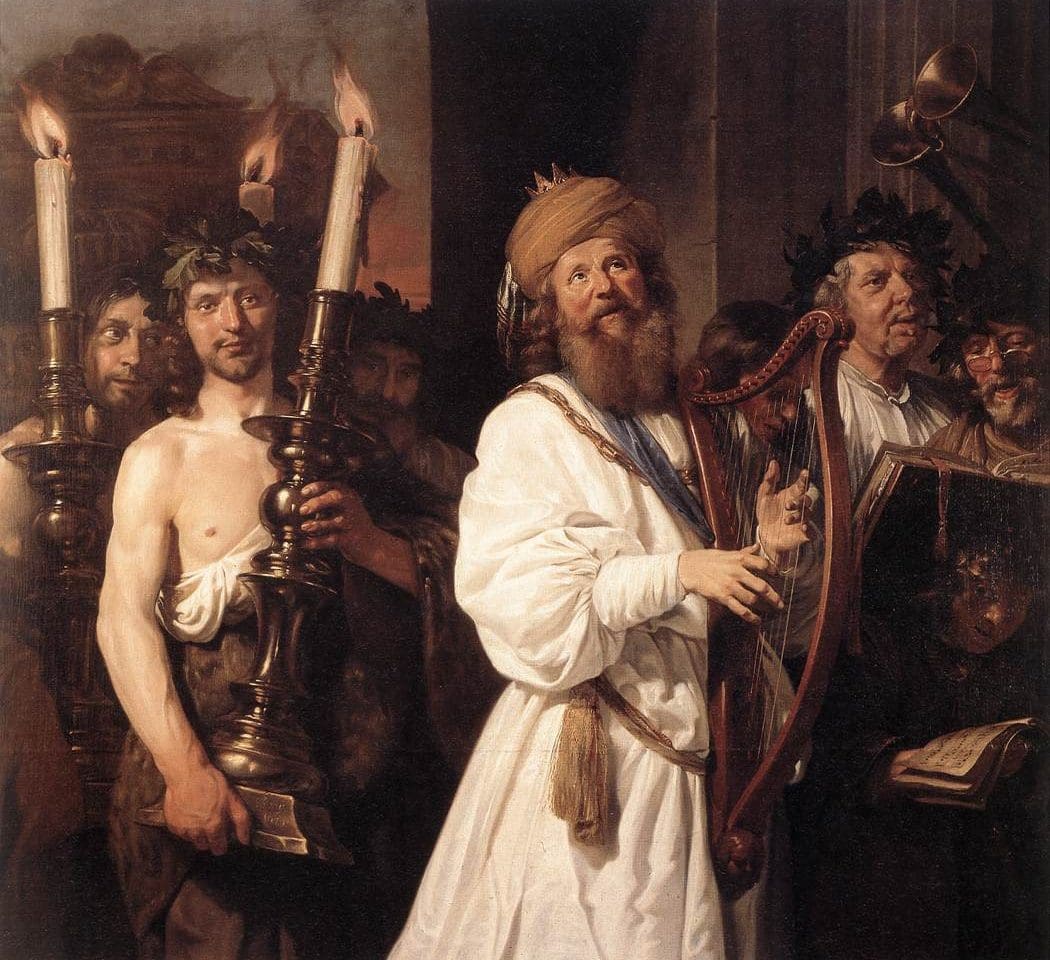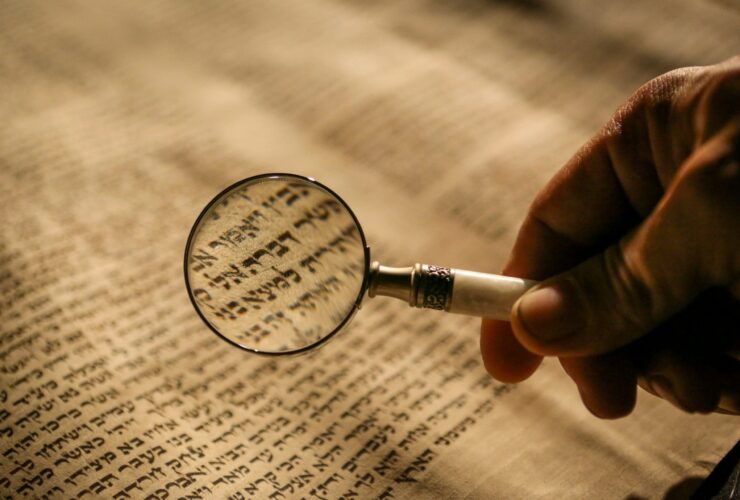The English title for the biblical book of Psalms comes from the Greek title meaning “Songs of Praise”, while in Hebrew it is just “Praise”. This simply sweet title sums up the book’s internal contents very well; made up of various worship songs, representing vast circumstances in human life, and about one third of these praises are written in a prayer format.
Not all of the Bible’s 150 Psalms have claimed authors, 48 of them are anonymous, of the remaining 102 King David’s name is connected to about half of them! Biblically this falls right into line with what we know about David, in 2 Samuel 23:1 he is called the ‘favourite singer (or psalmist) of Israel’, and before he was king, he was a musician in Saul’s royal court (1 Samuel 16). The Psalms ascribed to him also reflect the life experiences he is known to have had as a shepherd, a military man, and king.
“It has been noted that the entire book of Psalms is arranged into five different sections, believed by many to mirror the first five books of the Bible.”
Of the remaining Psalms, 12 of them are ascribed to Asaph (Psalm 50, 70-83). Asaph was one of David’s chief musicians (1 Chronicles 6:39), but the Bible also tells us that after his life a group of musicians took on his name as well (Ezra 2:40-41), which explains why one Psalm named after him appears to be from the time after the Babylonian exile, hundreds of years after Asaph’s life. 10 Psalms are claimed by the Sons of Korah (Psalm 42, 44-49), a group of temple singers mentioned in 2 Chronicles 20:19. 2 Psalms are ascribed to King Solomon (Psalm 72, 172). 1 to Heman the son of Korah (Psalm 88), a Temple singer during the reigns of David & Solomon. He is called a seer, one who prophesied using musical instruments (1 Chronicles 6:33; 25:5). 1 Psalm is credited to Ethan (Psalm 89), a man also mentioned as a Temple singer (1 Chronicles 6:42, 44; 15:17). And surprisingly, 1 Psalm is ascribed to Moses (Psalm 90).


With these authors in mind, it would have taken about 1,000 years for the book of Psalms to have been completed, and it is often believed that final editor and compiler was Ezra (450BC).
Traditionally, it has been noted that the entire book of Psalms is arranged into five different sections or books, believed by many to mirror the first five books of the Bible.
- Psalms 1-41 (cf. Genesis)
- Psalms 42-72 (cf. Exodus)
- Psalms 73-89 (cf. Leviticus)
- Psalms 90-106 (cf. Numbers)
- Psalms 107-150 (cf. Deuteronomy)

Corie Bobechko is a daily co-host, speaker, and writer of Bible Discovery. She also hosts a YouTube channel that shows how history and archaeology prove the Bible. Her heart for seekers and skeptics has led her to seek truth and share it with others. Corie also has a Bachelor of Theology from Canada Christian College.






